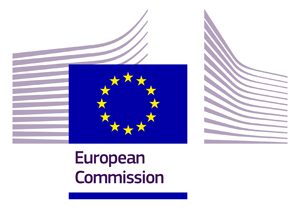Our March 16th webinar on ‘Conflict diamonds are real, real talk is rare’ provided lots of food for thought and provoked various interesting questions by participants. Time constraints unfortunately prevented us from addressing these during the webinar. As we highly value an inclusive discussion, we followed-up with panelists to seek replies on these important issues. We have uploaded the replies we received below. If we would still receive answers by panelists who have not yet replied, we will update this page accordingly.
Questions addressed to Iris van der Veken, Executive Director of the Responsible Jewellery Council (RJC).
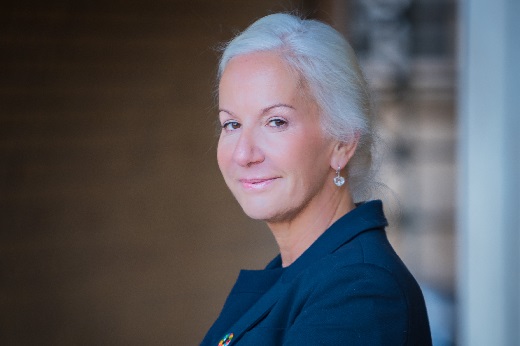
Q: Robin Gambhir – It’s interesting to me that the year I was certified by the RJC, over a decade ago, the beneficial owner of THIS mine in Ibrahim’s community was also certified by the Responsible Jewelry Council, and since then, it seems like nothing has changed. We, as a company, choose not to sell African diamonds. Instead we sell lab grown and Canadian diamonds which is helping no one in these countries, and we do so because we can’t trust a supply chain tainted by human rights abuses. What does this say about the practical limitations of the RJC’s standards to create an industry that is responsible to all those impacted by it?
Members sourcing materials from conflict affected and high-risk areas have an obligation to assess whether the material they purchased has contributed to human rights abuses and other risks, following the OECD Due Diligence Guidance. This is a mandatory requirement for all RJC members to comply with the 2019 Code of Practices.
Q: Kesha Frank – As a long time member of the RJC, and a Standards Committee member I am disturbed to hear of the newly announced cross-membership partnership with an organization such as the WDC who continue to disregard issues of Human Rights and Labour and refuse to address them in any meaningful way in their new SoW. How do you justify this decision? Do you believe you can actually make meaningful change with an organization that refuses to address basic human rights?
We are at a cross road of opportunity to lead the agenda of sustainability for the jewellery and watch industry. It is all about trust and trust is based on responsible business practices and actions. The decade of action is about leaving no one behind. If you want to go fast, go alone; if you want to go far, go together.
No one can do this alone, if there is something that we have learned from Covid, it is the importance of working together and the importance of connectivity. This is the time to partner and commit to pragmatic solutions that achieve positive impact on the ground. It requires strong consistent government policies, robust standards like RJC to implement and requires multi-stakeholder cooperation to continuously evolve implementation on the ground.
The RJC code of practices and the KP complement each other, but they are two separate standards – one has been set by industry, and the other has been set by governments. The KP is a standard for the import and export of rough diamonds from one jurisdiction to another and requires the appropriate certification to be issued by the exporting government. The RJC Code of Practices provides, a comprehensive framework applicable to the supply chain from mining to retail, and applies to diamonds, gold silver, coloured gemstones, platinum group metals. The RJC Code also requires all members to apply the OECD 5 step framework of Due Diligence in their supply chain which is designed to reveal and mitigate human rights concerns in any supply chain.
So, while governments are responsible for the Kimberly Process, the role of industry is to establish and implement standards throughout the supply chain – not just for diamonds but all jewellery products. In practice, what this means is that any industry member that wants to trade rough diamonds internationally has to go via a diamond/customs office where diamonds require documents for KP certificate. This is a role industry cannot control – we can’t act as a border control or customs, this is the role of governments.
But, we as an industry can and do step up to create complementary measures to those important government and customs criteria. This is our role as industry, to add certain management systems to enable responsible sourcing.
Sustainability, our future, is everybody’s responsibility.
Q: Cristina Villegas – I see that there are court cases against this company (Octea) in Sierra Leone. Given the reputational risks to the whole sector that could undermine consumer confidence in natural diamonds, is the World Diamond Council or other industry associations to help resolve these conflicts or otherwise intervene? Why or why not? It seems to me that unless problematic players are made to be pariahs, the whole industry will have an image problem. If not the WDC, what would be the right body for that? The Natural Diamond Council? International Diamond Manufacturers Association (IDMA)? Unless the industry is willing to self-police, we’re going to be continuing to have this discussion of abuse, and the undermining of consumer confidence in mined diamonds.
Q: Edward Johnson – Saskia calls for a system of independent audits on the diamond industry. It exists and has been working for 15 years now to bring improvements to the supply chain. The question is: how is RJC and its members working to prevent these HR violations?
The RJC has set the global standard for the responsible jewellery industry, covering the whole jewellery supply chain from mine to retail. Over the last 15 years, the RJC has established a truly global community of leaders on responsible business practices, launched our first base-line
Code of Practices in 2009, increased our standards portfolio with a Chain of Custody model and a three-times revised Code of Practices. Our membership has grown from 14 founding members in 2005 to more than 1350 of which 60% are small enterprises spread over 71 countries. Ultimately, what we stand for, and stand up for, is integrity: through our supply chains, in our work, and of our membership.
In 2019 we took some additional steps that support our members in an evolving regulatory landscape. Our new Code of Practice is now aligned with the OECD Due Diligence Guidance and the UN Guiding Principles on Business and Human Rights, achieving strategic and practical alignment for our members. This underlines the critical importance of human rights standards and espeically human rights due diliegence throughput the jewellery supply chain. We also extended our scope to platinum group metals, silver and coloured stones, so that the global standard represented by the RJC’s COP can have ever greater reach and influence across the jewellery supply chain.
At the same time, we want to continue to educate the industry on the importance of human rights due diligence. In 2020, we organised many webinars on this topic and recently, on the 19 th April, we organised an update on upcoming EU Legislation and Human Rights Due Diligence (you can view the recording of the webinar here). The RJC is also investing a new tool to help companies manage human rights assessments, including both the policy and practical implementation.
We will continue our strong engagement with Human Rights Watch. We welcome their constructive feedback and we see this as an opportunity to advance the human rights due diligence implementation in the jewellery and watch supply chain.
Q: Ibrahim – Iris, you mentioned the role of industry and government. But I want to believe that if the industry sets standards, we have what we call international best practices, if this is the case, why can’t you tell the government this is the compliance measure we are going through with? But the government will just tell you they are compliant with this XYZ, there are no background (compliance) checks, whether the diamonds are coming from Sierra Leone are conflict free or not conflict free.
Governments are responsible for the Kimberly Process. The role of industry is to establish and implement standards throughout the supply chain. Not just for diamonds but all jewellery products. In practice, what this means is that any industry member that wants to trade rough diamonds internationally has to go via a diamond/customs office where diamonds require documents for KP certificate. That role is not one we can control – we can’t act as a border control or customs – governments have that right and duty to protect. But we as an industry need to always take leadership and step up, which is why we have the right to create complimentary measures to those important government and customs criteria, where industry can add certain management systems to support responsible sourcing.
The RJC does help to drive implementation of the KP because KP compliance is included in the RJC COP. The WDC SoW is also included in the COP, thereby extending the KP from rough to polished diamonds. RJC members are audited for KP and SoW compliance. Implementation of the OECD DDG is also included in the COP, so RJC members are applying due diligence – especially human rights due diligence – in their supply chains.
The RJC is a membership organisation with a mandate from its members to develop, administer standards, and certify member compliance with those standards. So the RJC plays a role, working with industry, to build supply chain integrity and transparency. The RJC is also engaged in advocacy with the industry to do what is right and, within its sphere of influence, for governments to do the same.
Q: Farai – Only those who come from outside Zimbabwe, and are in good stead with the government, who will see no evil, hear no evil, say no evil… people like delegations from the KP process can enter Marange’s diamond fields. We, the people of Zimbabwe, have no access to Marange. How can the WDC and RJC claim legitimacy when they or members are working hand in hand with authoritarian governments rather than being accountable to the people who live there?”
The RJC is the leading standards organisation for the global jewellery and watch industry. We have always believed in multi-stakeholder engagement that include government, business, and civil society. Our UNGC collaboration, ISEAL membership since 2011 and our active participation in the Multi Stakeholder Group of the OECD (since 2012) reflects our vision of inclusion and transparency.
RJC is committed to Human rights, decent work and the advancement of livelihoods of people and communities. We welcome engagement with governments, UN and other entities with clear mandates, resources and funding to promote human rights, and to investigate allegations of human rights abuses. The RJC is strongly committed to help advance the jewellery and watch industry in the implementation of human rights due diligence on the ground following the OECD five step framework and the UNGP on business and human rights. The RJC also requires members to comply with all applicable law, including international sanctions. Therefore, RJC members must not do business with sanctioned entities or individuals in Zimbabwe.
Questions addressed to Edward Asscher, President of the World Diamond Council (WDC)
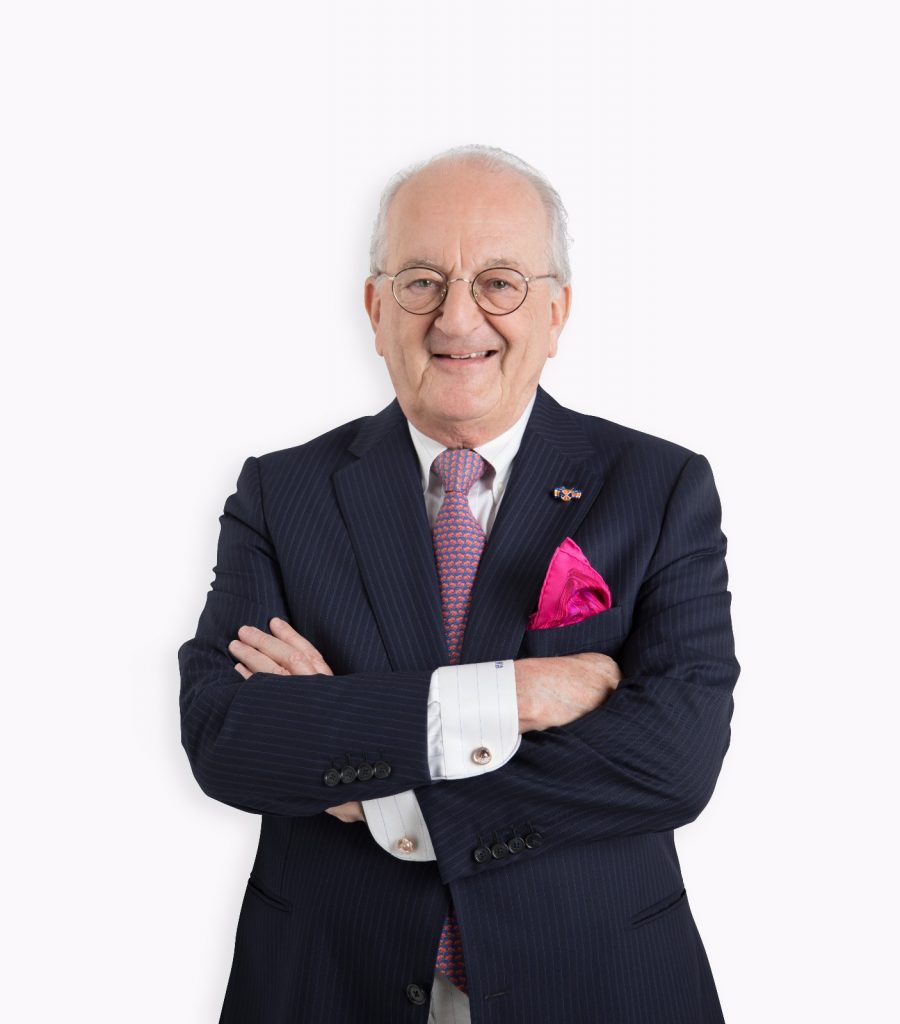
Q: Kesha Frank – It appears not much has changed for the WDC in it’s 2020 update to the SoW as companies are still only “encouraged” to avoid contributing to or causing Human Rights abuses. What justification do you provide to those who have suffered human rights abuses for why the language in the SoW is not compulsory?
The 2020 edition of the SoW Guidelines, which is the official WDC document outlining the obligations of diamond trading companies in their implementation of the System of Warranties, expressly states, and I quote, “The SoW Guidelines underline those buyers and seller of diamonds …. understand and implement universally accepted principles on human and labor rights…”
The text is clear and unequivocal, and, furthermore, the SoW Guidelines also reference key international conventions, among them the UN Guiding Principles on Business and Human Rights and the ILO Declaration on Fundamental Principles and Rights at Work.
De facto, compliance with the SoW has become requirement of participation in the trade, and now, with the revised SoW about to be introduced, so is the commitment to protect human rights.
As an industry association we do not have standing within any legal jurisdiction, so we cannot declare the SoW to be compulsory. But, within the international trade, compliance with the SoW is a requirement of membership in all diamond exchanges belonging to the World Federation of Diamond Bourses (WFDB), nationals association belonging to the International Diamond Manufacturers Association (IDMA), clients of the largest rough diamond producers like De Beers and Alrosa, suppliers of the largest jewelry retailers, like Signet, Tiffany and Chow Tai Fook, as well as with the Responsible Jewellery Council’s Code of Practices and CIBJO’s Responsible Sourcing Blue Book. What this all means is that, in practical terms, compliance with the SoW is compulsory, even though it is not termed as such.
So let me be clear — this is not simply encouragement. Under the terms of the updated SoW, a company dealing in diamonds will not in good faith be able to issue a SoW Declaration without committing itself to the human rights commitment, and in the absence of that declaration on its invoices or memo documents it will not be able to participate in the legitimate supply chain.
WDC nor its members do not tolerate the abuse of human rights at any time, or in any place. When we are informed of such violations, we do our best to investigate them, but must work within the relevant legal systems. We call upon the governments, in whose territories, human rights abuses are taking place, to take immediate action to stop and remedy them. As an association we play an important role to support such efforts.
Q: Cristina Villegas – I see that there are court cases against this company (Octea) in Sierra Leone. Given the reputational risks to the whole sector that could undermine consumer confidence in natural diamonds, is the World Diamond Council or other industry associations to help resolve these conflicts or otherwise intervene? Why or why not? It seems to me that unless problematic players are made to be pariahs, the whole industry will have an image problem. If not the WDC, what would be the right body for that? The Natural Diamond Council? International Diamond Manufacturers Association (IDMA)? Unless the industry is willing to self-police, we’re going to be continuing to have this discussion of abuse, and the undermining of consumer confidence in mined diamonds.
In any given jurisdiction, government, industry and civil society are obliged to act within the framework of the constitution, the laws of the land and international treaties. No one can shirk from those.
When civil society and industry work together, wherever possible cooperating with governments, we can collaborate in identifying actors in violation with the law or universally accepted principals and see to it that justice is done.
When breaches of human rights come to the WDC’s attention, we are committed, within our mandate and area of responsibility, to approach the individuals, companies and governments involved.
Q: Ibrahim – You brought out the principles of the KP: Human Rights, AML, corruption, etc. But look at our situation here in Sierra Leone: In fact, the land (for the LSM mines) that was acquired was taken forcefully from the people, without free, prior and informed consent. Look at the way our ministries do whatever it takes… I was challenging them the other day “bring out one of the mining contracts you’ve ever investigated.” In fact, the corruption is really really rife, all over the place; there is no formal disclosure of winnings (earnings). So these are some of the things I am curious about when I hear about the 7 principles of the KP, in relation to the diamonds in Sierra Leone.
Corruption is clearly rife in certain countries and is a matter that should be dealt with by other governments, the criminal courts and international organizations.
As an industry association, WDC is limited in its ability to tackle issues of corruption within governments, but we do address it at the grass roots level in our revised System of Warranties. The 2020 SoW Guidelines references the UN Convention against Corruption. Furthermore, the self-assessment process, which is a due diligence requirement that is part of the revised SoW, includes an anti-corruption section with 15 questions intended to root out instances of corruption or facilitation payments. Our approach is to concentrate on those areas where we can be most effective, and in this case, it is working to eliminate instances of corruption involving companies in the supply chain.
As the WDC is an Observer in the Kimberley Process, our influence on governments suspected to be corrupt is limited. But we meet and engage with them on a regular basis, and the subjects involved include issues like human rights and corruption. We intend to bring these up again during the upcoming virtual Meetings in June.
Q: Farai – Only those who come from outside Zimbabwe, and are in good stead with the government, who will see no evil, hear no evil, say no evil… people like delegations from the KP process can enter Marange’s diamond fields. We, the people of Zimbabwe, have no access to Marange. How can the WDC and RJC claim legitimacy when they or members are working hand in hand with authoritarian governments rather than being accountable to the people who live there?”
The Zimbabwe government is recognized by the international community. We must work with the recognized authorities, regardless of political opinions of individuals or organizations outside or inside the country.
We realize that, as an organization representing the diamond industry, WDC sometimes has limited influence. But, by setting clear standards of practice at the company level, we believe that we are able to influence events. We require our members to practice enhanced due diligence whenever they buy diamonds, sourcing only from companies who respect human rights.
We should never lose sight of the fact that the diamonds from Zimbabwe provide revenue not only to the state, the miners, the industry and the trade, but also to thousands of individuals and communities in the diamond mining regions. To protect their interests, we are keen to engage together with the KP Civil Society Coalition, with the Zimbabwe government, during the upcoming meetings.
Questions addressed to Farai Maguwu, Director of the Centre for Natural Resource Governance
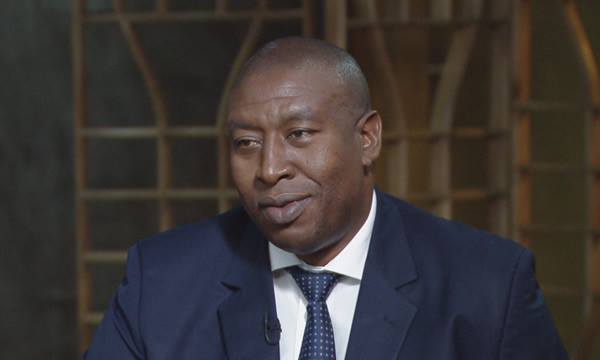
Q: Jacob Thamage – We know there has been a change of leadership in your country. Has there been any change in approach to diamond mining in your country? What is the status of mining in Marange?
Q: Clinton Davis – The Kimberley Process was never intended to deal with internal governance and policing issues. If it did get involved, where would it stop?
Questions addressed to Ibrahim, community representative and activist from Sierra Leone
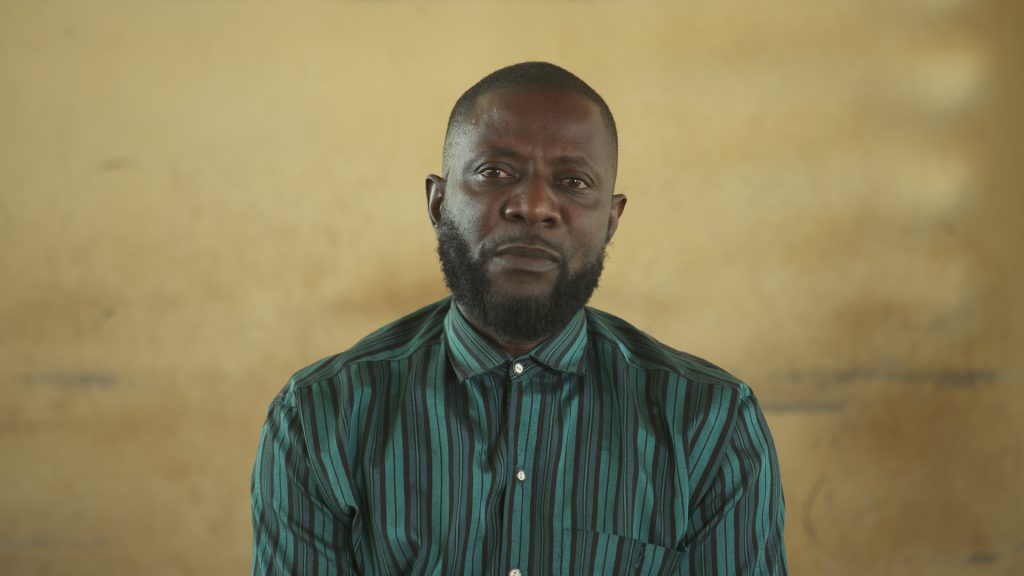
Q: Jacob Thamage – Are diamond companies in Sierra Leone properly licensed and are they working within the laws of the country? What role is the government playing or not playing ?
The government is supposed to play a supervisory role, offer security, and negotiate conflict between communities and companies. They are charged with settling disputes, but they largely settle them in favor of the mining companies.
Q: Francis Swekila – Are the local content policies and their strict implementation the best solution to guarantee a sustainable development of local communities where mining corporations operate?




